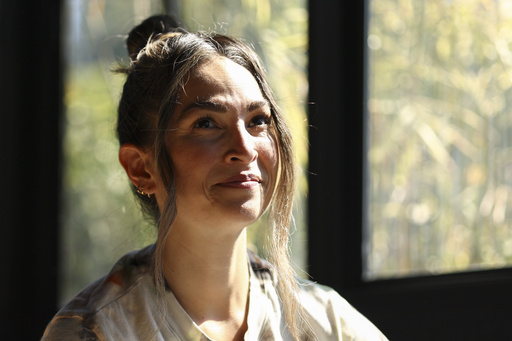If the impending presidential election is giving rise to troubling thoughts, anxiety, or conflicts with loved ones, there are constructive ways to cope.
Taking a moment to breathe deeply can be a beneficial first step. Rosie Acosta, a mindfulness and meditation instructor, emphasizes the value of concentrating on one’s breathing to regain a sense of control amidst the unpredictability of the election period. Experts like Acosta, who works for the mental health app Headspace in Southern California, advocate for strategies to alleviate stress related to the election and mitigate associated interpersonal tensions.
“I can manage my breathing. I can apply mindfulness techniques to stay present, rather than fretting over what the election results may bring,” Acosta explained. She has developed guided meditations titled “Surviving Dinner Table Debates” and “Compassion During Campaign Season,” which are part of Headspace’s collection aimed at navigating politics without anxiety.
Many Americans feel that the upcoming election is crucial for the U.S. democracy, with surveys indicating that roughly 75% of adults hold this belief. Although opinions differ on which candidate may be more threatening, political affiliation largely shapes these views.
Acosta reflected on how political disagreements infiltrated her family gatherings during the 2016 elections, transforming what should have been joyous occasions into contentious debates. She learned the importance of setting boundaries with certain relatives and focusing on shared interests rather than divisive topics. This may involve steering the conversation away from political issues or bringing up fond memories to diffuse tension.
“Mindfulness and meditation empower us to reshape our interactions – not just with others, but also with our own thoughts,” she added. Alongside Headspace, Acosta collaborates with the national nonpartisan group When We All Vote, started by former First Lady Michelle Obama, to offer resources aimed at reducing election-related stress. Included is a quiz to help individuals identify their stress type as well as a registration portal for voters.
The Rev. Cynthia O’Brien recognizes that many people feel anxious about political discussions during family gatherings, especially around Thanksgiving. “Thanksgiving is a time for family, but the conversations can sometimes create divides,” she noted. O’Brien advises avoiding political debates at the dinner table and instead suggests opting for private discussions.
As a pastor dealing with both liberal and conservative congregants in Oregon, O’Brien is experienced in fostering understanding across ideological divides. She leads workshops with Braver Angels, an organization focused on bridging political divides and promotes skills for engaging in constructive disagreements.
“We are not aiming to eliminate differences; rather, we are equipping individuals with the tools to express differing opinions in a respectful and compassionate manner,” O’Brien elaborated. The goal is to foster deeper understanding of various political perspectives while encouraging careful listening and sharing of personal experiences related to differing views.
Dr. Petros Levounis, a psychiatry professor, reassures those experiencing anxiety about the election that they are not alone in their feelings. He highlights the significance of maintaining physical health through adequate sleep, nutrition, and regular exercise, as these factors are essential for overall well-being.
Levounis suggests finding time to unwind and engaging in mindfulness practices, such as breathing exercises or meditation, as these methods can reduce stress levels. He warns against using alcohol as a coping mechanism, noting that it can lead to increased anxiety over time. For individuals struggling with severe anxiety that disrupts daily life, consulting a mental health professional is advisable.
Educational institutions are also providing resources to help students manage election-related stress. Shauna Olson Hong, director of counseling services at California State University, East Bay, indicates that many students are eager to understand how politics influence their lives, particularly those from marginalized communities.
The counseling center has curated online tips, which encourage limiting news consumption, especially before bedtime, and being discerning about news sources. Other recommendations include seeking support and finding ways to engage in advocacy positively without losing personal balance.
“It’s unproductive to remain idle while worried about uncontrollable events, as this can amplify anxiety,” Hong advised. Taking actionable steps to advocate for personal beliefs can help alleviate feelings of helplessness during these uncertain times.
